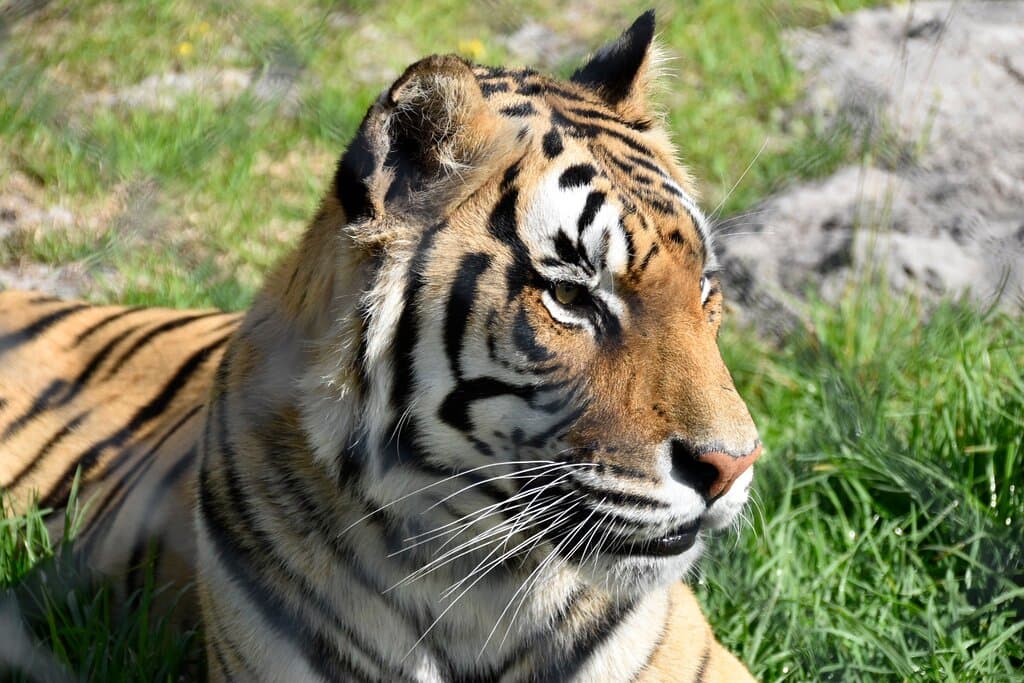
Panthera Africa Big Cat Sanctuary Stanford
A true ethical sanctuary for rescued lions, tigers, and leopards, offering educational tours and a commitment to animal welfare.
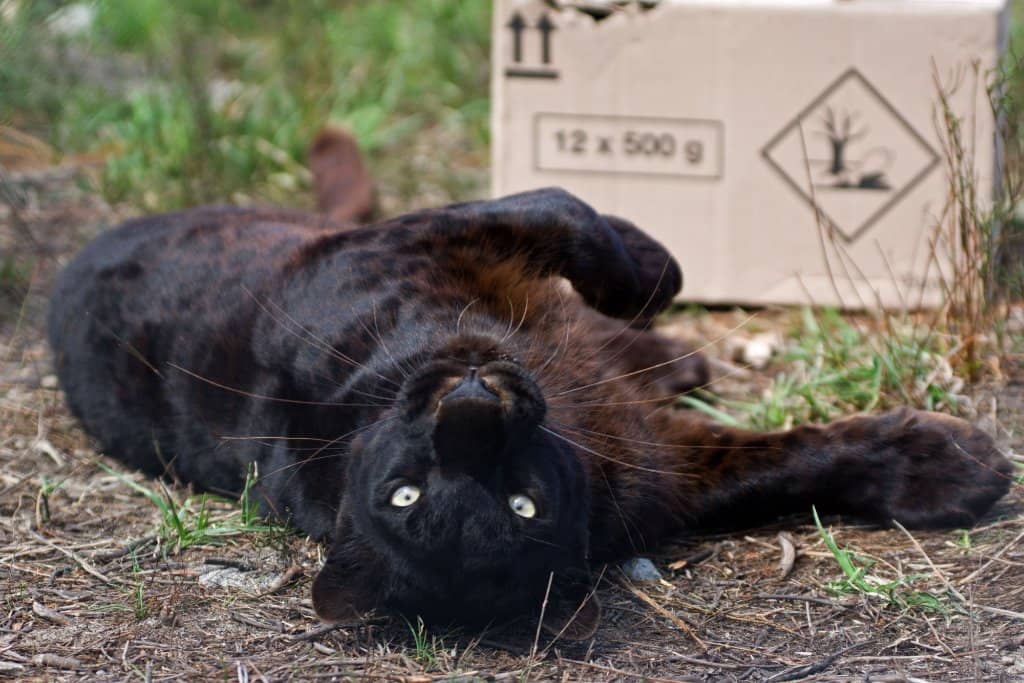
Highlights
Must-see attractions

Social
From TikTok & Reddit
Best Time
Animals are most active

Panthera Africa Big Cat Sanctuary Stanford
Best Time
Animals are most active

Highlights
Must-see attractions
A true ethical sanctuary for rescued lions, tigers, and leopards, offering educational tours and a commitment to animal welfare.
"This is what a real sanctuary looks like - no breeding, no trading, no tourist interactions with the animals."
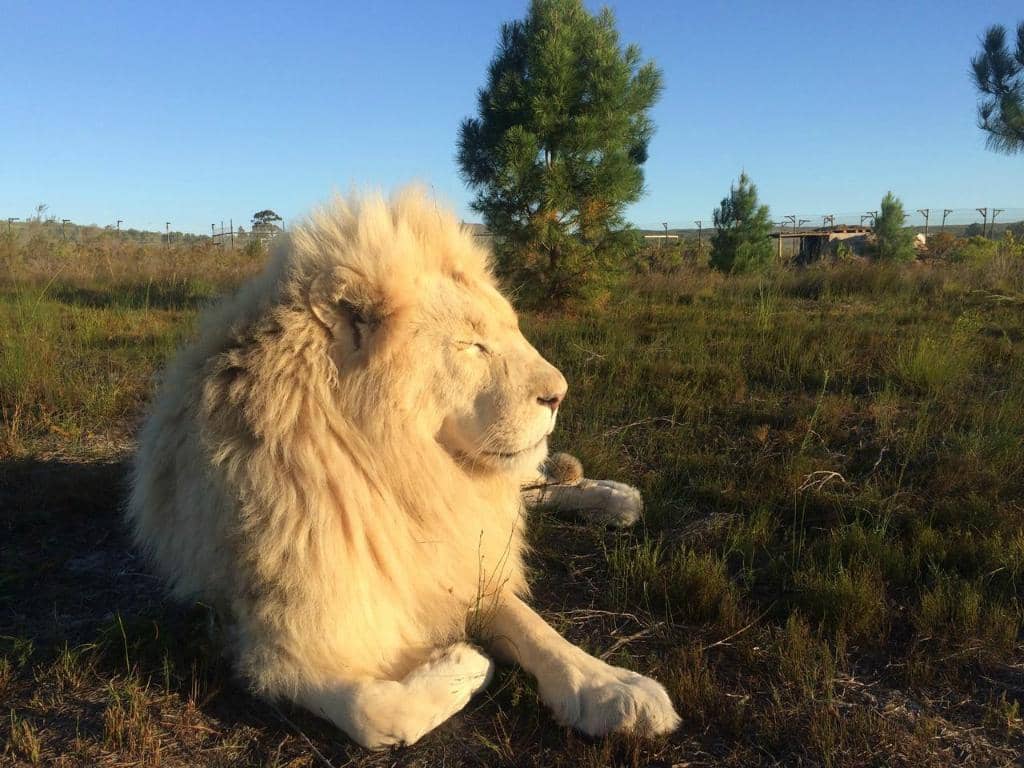
🎯 Book Your Tour Ahead
Tours are essential for visiting and often sell out. Book online to secure your spot and support the sanctuary's mission.
👟 Wear Comfortable Shoes
You'll be walking around the sanctuary, so comfortable footwear is a must for exploring the enclosures.

Highlights
Discover the most iconic attractions and experiences
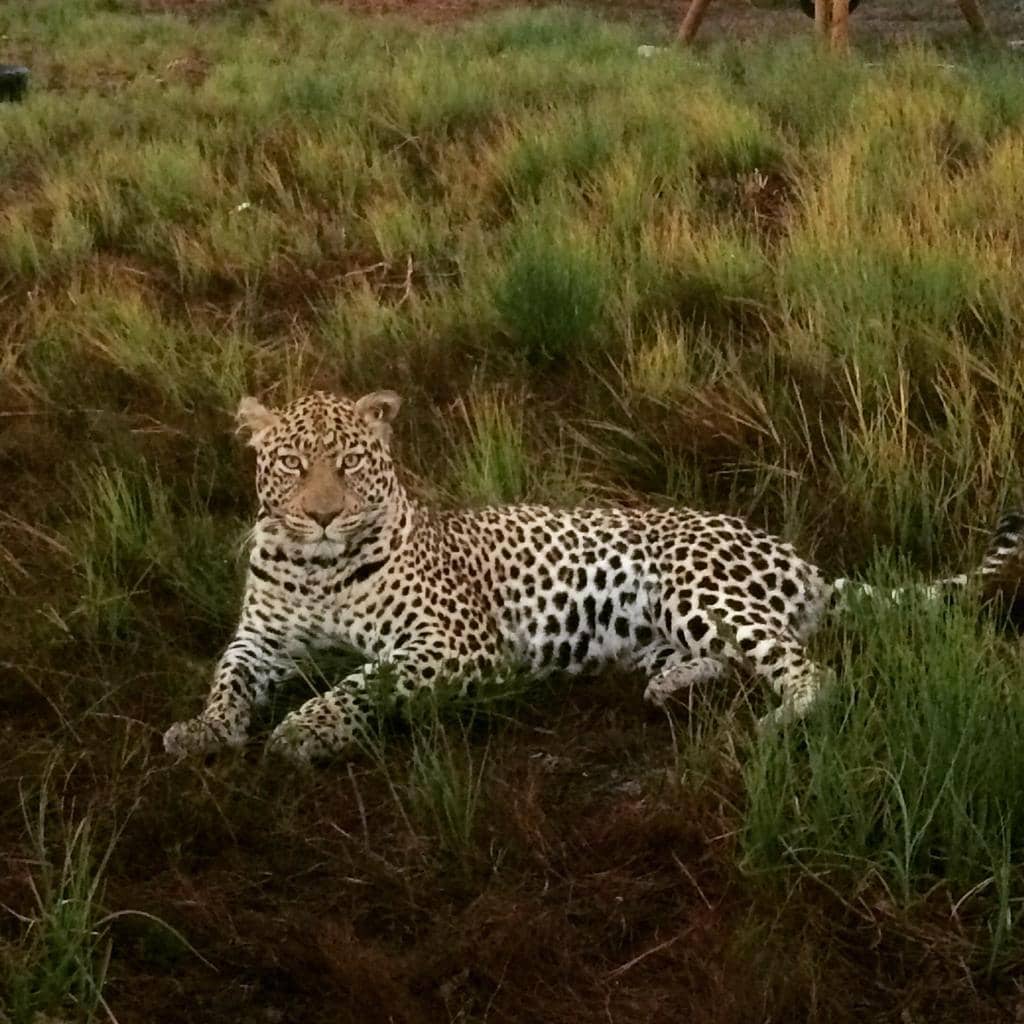
Rescued Big Cats
Various enclosures
Witness lions, tigers, and leopards rescued from cruel industries, living in spacious, natural habitats.
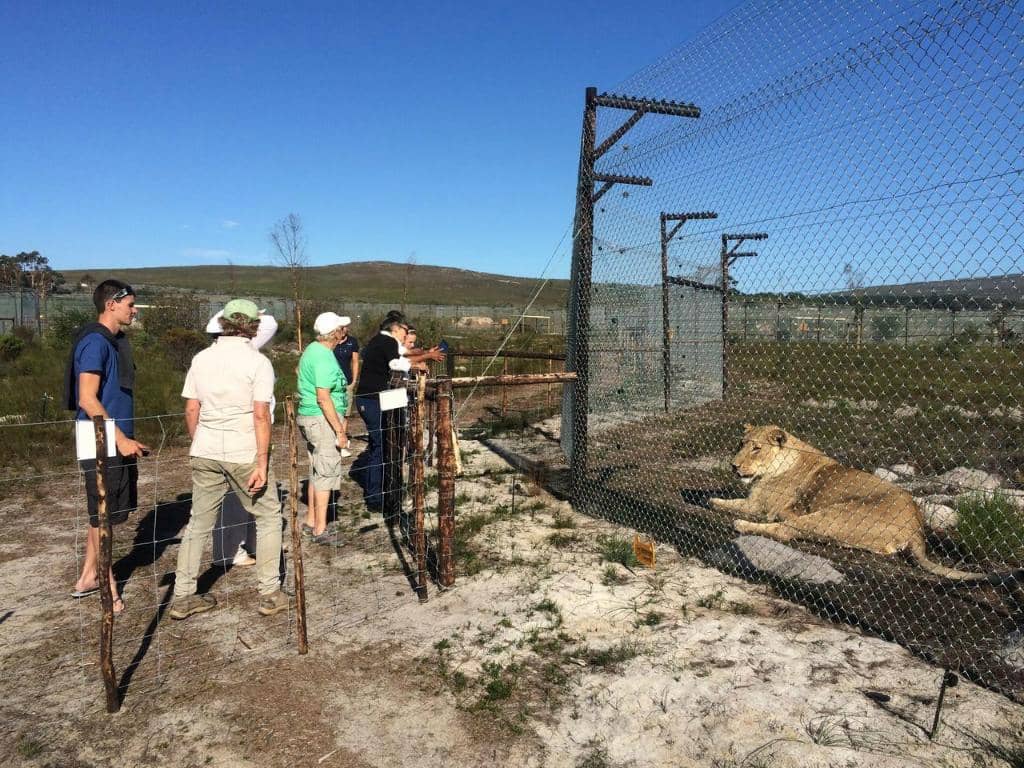
Heartbreaking Rescue Stories
Throughout the tour
Hear the individual, often tragic, stories of each animal's rescue and journey to the sanctuary.
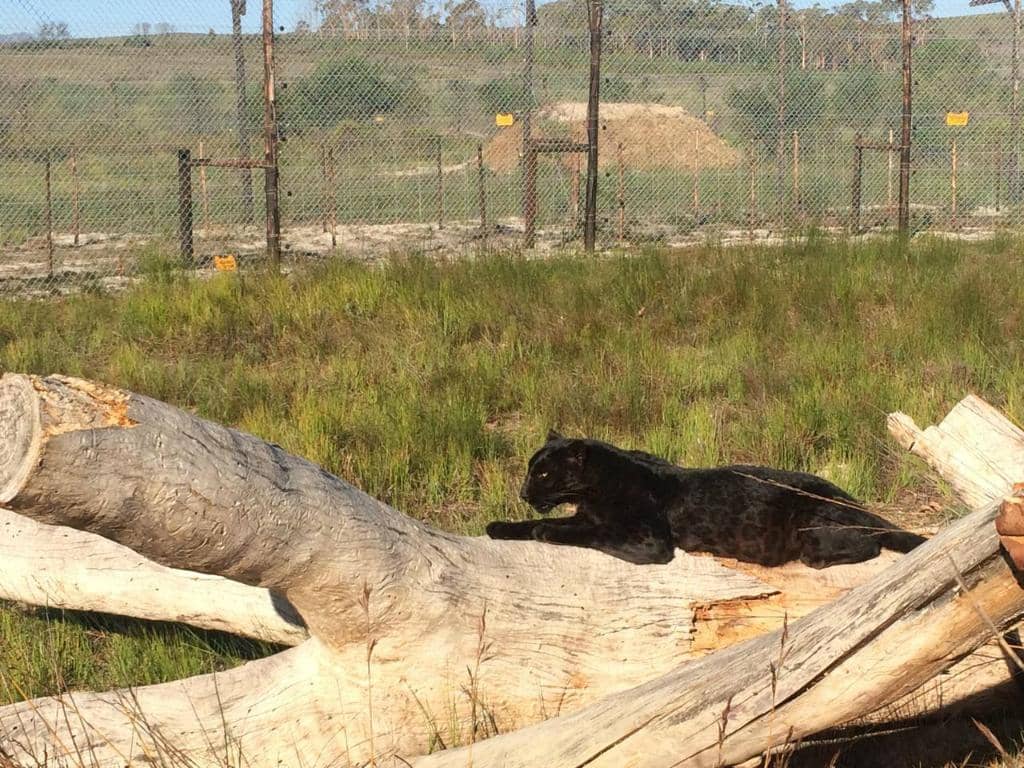
Educational Insights
Visitor center and enclosures
Learn about the realities of the lion bone trade, tiger bone medicine trade, and animal rights in South Africa.
Plans like a pro.
Thinks like you
Planning Your Visit
Ethical Sanctuary Focus
Book in Advance
Best Times
Insider Tips
from TikTok, Instagram & Reddit
🎯 Book Your Tour Ahead
Tours are essential for visiting and often sell out. Book online to secure your spot and support the sanctuary's mission.
👟 Wear Comfortable Shoes
You'll be walking around the sanctuary, so comfortable footwear is a must for exploring the enclosures.
💧 Bring Water & Sunscreen
The Western Cape sun can be strong. Stay hydrated and protected, especially during morning or afternoon tours.
📸 Respect Animal Space
Photography is allowed, but remember these are rescued animals. Maintain a respectful distance and avoid flash photography.
Tips
from all over the internet
🎯 Book Your Tour Ahead
Tours are essential for visiting and often sell out. Book online to secure your spot and support the sanctuary's mission.
👟 Wear Comfortable Shoes
You'll be walking around the sanctuary, so comfortable footwear is a must for exploring the enclosures.
💧 Bring Water & Sunscreen
The Western Cape sun can be strong. Stay hydrated and protected, especially during morning or afternoon tours.
📸 Respect Animal Space
Photography is allowed, but remember these are rescued animals. Maintain a respectful distance and avoid flash photography.
💖 Support Their Mission
Consider donating or purchasing merchandise. Every contribution helps Panthera Africa continue its vital conservation work.
What Travellers Say
Reviews Summary
Visitors consistently praise Panthera Africa for its deeply ethical approach to big cat welfare, highlighting the spacious enclosures and the heartbreaking yet inspiring rescue stories. The knowledgeable and passionate guides are a significant draw, making the experience both educational and emotional. While not a place for direct animal interaction, its commitment to genuine sanctuary principles leaves a lasting positive impression.
"What an awesome experience!!
Did one of their tours a few days ago and really enjoyed it. I was a bit sceptical about the ethical aspects but it seems like a honest sanctuary and I couldn’t find any negative things about it.
They’re acting in the best interest of the animals. If the animals don’t want to be seen you won’t see them. Personally I rather not see them but know that they are comfortable instead of them being in a small cage just for the sake of humans entertainment!
They inform you about all the animals and their history which also helps you to understand the animal rights in (south) Africa more.
So all in all a pleasant experience and a good sanctuary to support."
Everrr H
"Visiting Panthera Big Cat Sanctuary in Stanford was both heartbreaking and inspiring. Hearing the stories of lions, tigers, and leopards rescued from the lion bone trade, tiger bone medicine trade, and other cruelty brought the reality of these issues to life in a way I’ll never forget.
What makes Panthera exceptional is their 100% ethical approach. The animals live in spacious, natural habitats tailored to their needs, with an enrichment enclosure to keep them stimulated — no petting, no exploitation, just genuine care.
Our guide, Kate, was outstanding — knowledgeable, passionate, and happy to answer every question. The visit was educational, emotional, and truly impressive to see how the sanctuary is determined to respect the animals and give them the dignity they deserve.
I highly recommend this to all ages. If you can, please visit, donate, and help them continue their incredible work."
Bianca Walker
"Excellent sanctuary. Definitely worth a visit. Our guide Kate gave us extensive knowledge about the breeding trade as well as the bone trade in South Africa. She also gave us the back stories of the saved animals in the sanctuary which gave them character. Instead of just a tiger/lion etc they had names and a survival story. Definitely recommending for friends and family."
Olivia Nealon
What People Like
What People Dislike
Frequently Asked Questions
🚇 🗺️ Getting There
Panthera Africa is located in Stanford, about a 1.5 to 2-hour drive from Cape Town. The most convenient way to get there is by car. You can rent a car or arrange for a private transfer. The drive itself is scenic, passing through the Western Cape countryside.
Public transport options directly to Stanford and the sanctuary are limited. It's best to have your own vehicle or arrange transport. Some visitors combine a visit with a trip to Hermanus, which has more transport links.
From Cape Town, take the N2 highway towards Somerset West. Continue on the N2 and take the exit for the R44 towards Clarence Drive/Gordon's Bay. Follow the R44 along the coast, passing through Betty's Bay and Kleinmond. You'll then join the R43 towards Hermanus and eventually follow signs for Stanford.
Yes, ample parking is available at Panthera Africa Big Cat Sanctuary for visitors arriving by car.
Absolutely! Stanford is a short drive from Hermanus (approximately 20-30 minutes), making Panthera Africa an excellent addition to a day trip from Hermanus.
🎫 🎫 Tickets & Entry
Ticket prices vary depending on the tour type. It's best to check their official website for the most up-to-date pricing for standard tours, private tours, or special experiences. Booking in advance is highly recommended.
Yes, booking your tour in advance is strongly advised. This ensures you get a spot on your preferred date and time, as tours can fill up quickly.
Panthera Africa typically operates tours at specific times throughout the day. It's crucial to check their official website for current operating hours and tour schedules before planning your visit.
Yes, Panthera Africa offers various tour options, including standard guided tours, private tours, and sometimes specialized experiences. Each offers a unique way to learn about the animals and the sanctuary's work.
Yes, Panthera Africa is considered suitable for all ages. The educational aspect is highly valuable for children, teaching them about conservation and animal welfare.
🎫 🧭 Onsite Experience
Expect an educational and emotional experience. Knowledgeable guides will share the rescue stories of lions, tigers, and leopards, explaining the sanctuary's ethical approach and conservation efforts. You'll observe the animals in their spacious enclosures.
No, direct interaction or petting of the big cats is strictly prohibited. Panthera Africa is a true sanctuary focused on the animals' welfare, not entertainment. This ethical stance is a key aspect of their operation.
Standard guided tours usually last around 1.5 to 2 hours, providing ample time to see the animals and learn from your guide. Private tours may vary in length.
Panthera Africa is committed to a 100% ethical approach. They do not breed, trade, or allow tourist interactions with the animals. Their focus is on providing a safe, spacious, and dignified home for rescued big cats.
The sanctuary typically has visitor facilities including restrooms and a small shop where you can purchase merchandise to support their work.
📸 📸 Photography
Yes, photography is generally allowed at Panthera Africa. However, it's important to be respectful of the animals and avoid using flash photography, which can disturb them.
Early morning or late afternoon tours often provide the best light for photography. Animals may also be more active during these cooler parts of the day.
While general photography is permitted, always follow your guide's instructions. Avoid intrusive behavior that might stress the animals. Drone photography is typically not allowed.
You can take photos of the staff if they are comfortable with it, but the primary focus should be on the magnificent big cats and the sanctuary's environment.
Focus on capturing the natural behavior of the animals in their spacious enclosures. Shots that highlight their power, grace, and the care they receive are most impactful.
For Different Travelers
Tailored advice for your travel style
👨👩👧 Families with Kids
Plan your visit for the morning when animals are often more active. Ensure children are reminded to be quiet and respectful observers. The educational aspect of the tour can spark important conversations about animal rights and conservation, making it a truly enriching outing for the whole family. Comfortable shoes and sun protection are essential for everyone.
🌍 Ethical Travelers
Your visit directly contributes to the sanctuary's mission of rescuing and rehabilitating big cats from exploitative industries. The in-depth tours provide valuable insights into the challenges of big cat conservation and the impact of human activities. It's an opportunity to support a cause you believe in while experiencing the awe-inspiring presence of these magnificent animals in a responsible setting.
Deep Dives
In-depth insights and expert knowledge
The Ethical Heart of Panthera Africa
The sanctuary's mission is to provide a safe haven for big cats rescued from dire circumstances, such as the lion bone trade, tiger bone medicine trade, and private ownership. Each animal has a unique, often heartbreaking, backstory that is shared during the guided tours. This educational component is crucial, as it helps visitors understand the harsh realities faced by these magnificent creatures and the importance of supporting ethical conservation efforts. The spacious, naturalistic enclosures are designed to mimic the animals' natural habitats, allowing them to exhibit natural behaviors and live as comfortably as possible.
Guides like Kate are frequently highlighted for their passion, knowledge, and engaging storytelling. They are instrumental in conveying the sanctuary's message and ensuring visitors leave with a deeper understanding of big cat conservation. The emotional impact of hearing these rescue stories, combined with seeing the animals thrive in a safe environment, makes a visit to Panthera Africa a profoundly moving and inspiring experience. It's a place where you can feel good about your visit, knowing you are directly contributing to the welfare of these animals.
Understanding the Big Cat Crisis
Similarly, tigers and other big cats can be victims of the tiger bone medicine trade, where their body parts are sought after for perceived medicinal properties. Many animals end up in private collections, circuses, or roadside attractions where their welfare is compromised. Panthera Africa steps in to rescue these animals, offering them a life free from exploitation and cruelty. Their tours are designed to shed light on these issues, making visitors aware of the demand that drives these industries and the importance of supporting ethical sanctuaries.
By visiting Panthera Africa, you are not just having an incredible wildlife experience; you are actively supporting an organization that is fighting against these inhumane practices. The sanctuary's work is a testament to the possibility of rehabilitation and the importance of conservation efforts that prioritize the animals' well-being above all else. It's an opportunity to learn, reflect, and become an advocate for these endangered species.
Social
from TikTok, Instagram & Reddit